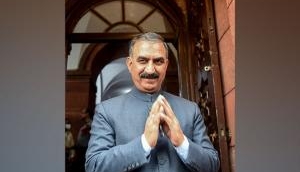
The Uniform Civil Code has been splashed across headlines in India once again, with the Law Commission's move to release a questionnaire seeking a public vote on its implementation.
The move has drawn criticism from The All India Muslim Personal Law Board (AIMPLB) and other Muslim organisations, who have alleged that it is an attempt at curtailing the constitutional rights of minorities in the country.
All this buzz surrounding the issue begs but one simple question. What exactly is the Uniform Civil Code?
In order to comprehend this, it is important to understand the difference between personal law and public laws in India. The former is applicable to issues like marriage, divorce, inheritance, adoption and maintenance.
Also Read: The debate over Uniform Civil Code explained
The Uniform Civil Code seeks to replace the personal laws - which are bound by religious regulations - with a common set of laws. The demand for a uniform civil code essentially means a unification of all these personal laws to have one set of secular laws which will be applicable to all citizens of India irrespective of the community/religion they belong to.
Here is a breakdown of what the Uniform Civil Code means:
1. The BJP has been demanding for the Uniform Civil Code for a long time. The issue also found mention in their election manifesto. The BJP often points to Goa in this regard, considering that it is the only state in the country with a Uniform Civil Code.
2. In October 2015, the Supreme Court stressed on the need of a Uniform Civil Code. "This cannot be accepted, otherwise every religion will say it has a right to decide various issues as a matter of its personal law. We don't agree with this at all. It has to be done through a decree of a court," the court said in connection with personal laws.
3. Article 44 of the Indian Constitution, one of the directive principles, provides that 'the state shall endeavour to provide for its citizens a uniform civil code throughout the territory of India.'
4. Article 37 of the Constitution makes it clear that the directive principles "shall not be enforceable by any court" but they are fundamental in the governance of the country.
5. Article 25, which gives freedom of conscience and free profession, practice and propagation of religion does not hinder the implementation of Uniform civil code. As the right to worship and practice religion cannot be confused with individual rights relating to inheritance, marriage or divorce, right to property, adoption etc.
6.While the demand for Uniform Civil Code is much older, it came to the limelight in 1985 after Shah Bano Begum, a 60-year-old woman, went to court demanding maintenance from her former husband. The court ruled in her favour and Bano was entitled to maintenance from her ex-husband like any other Indian woman. However, then Prime Minister Rajiv Gandhi reversed the decision after the case created uproar with the Muslim clergy and the Muslim Personal Law Board denouncing the judgement.
7. Several religious groups are against the Uniform Civil code as they think it will take away their religious rights. The objective of the questionnaire that the Law commission has given out says it is an effort to "address discrimination against various groups and harmonise various cultural practices."
8. Those who are not in favour of the UCC argue that the new set of uniform laws may be misused against minority communities.
First published: 14 October 2016, 9:10 IST






![BJP's Kapil Mishra recreates Shankar Mahadevan’s ‘Breathless’ song to highlight Delhi pollution [WATCH] BJP's Kapil Mishra recreates Shankar Mahadevan’s ‘Breathless’ song to highlight Delhi pollution [WATCH]](https://images.catchnews.com/upload/2022/11/03/kapil-mishra_240884_300x172.png)

![Anupam Kher shares pictures of his toned body on 67th birthday [MUST SEE] Anupam Kher shares pictures of his toned body on 67th birthday [MUST SEE]](https://images.catchnews.com/upload/2022/03/07/Anupam_kher_231145_300x172.jpg)






